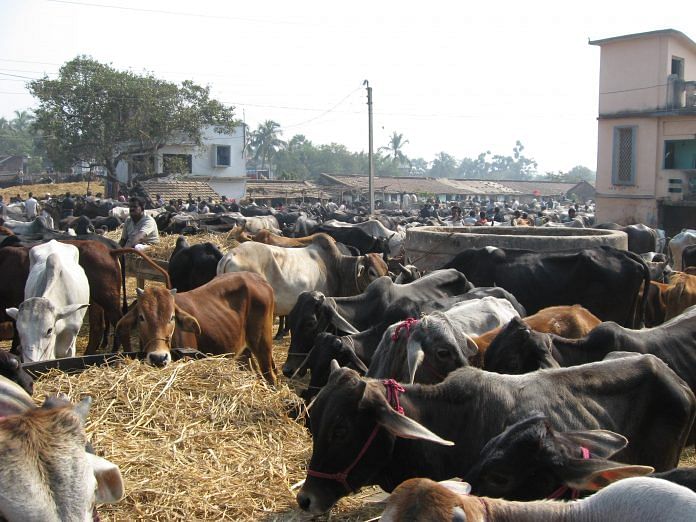The cattle trade notification has been engulfed in an embarrassing controversy of flip-flops, hurried announcements and now a rush to find facile solutions.
SANYA DHINGRA, APURVA VISHWANATH & ANUBHUTI VISHNOI
The widely expected government reversal of the controversial cattle trade notification came on Tuesday as the Centre told the Supreme Court that it will take a fresh look by August.
But the unseemly controversy surrounding the cattle notification has left many in the environment ministry red-faced in recent weeks, and the resolution is not likely to bring clarity either.
A livid PMO has been hauling up ministry officials over the provisions of the notification, the errors and impracticality it is riddled with, and the embarrassment of having to defend it amid public outcry.
The notification and its final version suggested by the Animal Welfare Board of India, said a source in the government, was passed through almost untouched and with little vetting by senior officials in the ministry. This resulted in the acrimonious litigation it now faces.
On Tuesday, even before the Supreme Court, which extended the Madras High Court stay, began to hear the case, the Centre volunteered to revisit the notification. “We are considering representations made by several parties and will make changes in the rules. Our intention is not to ban sale of cattle,” said the government’s law officer P.S. Narasimha, appearing for the Ministry of Environment and Forests. “We will put in place a better regime for sale of cattle and livestock that will serve everyone’s interests,” he added.
However, the Centre’s position in the apex court was markedly different from the one it adopted in various high courts last month, wherein the government had staunchly defended the notification. The Centre had earlier argued that the new rules would not have an adverse impact on the slaughter industry.
There was considerable debate within the ministry as well on whether to withdraw the notification completely or rework it. It finally chose the latter option.
A source in the ministry told ThePrint that it is going to redraft the notification and submit the amendments to the Supreme Court, since the earlier notification had led to “misinterpretations”. Arguing, however, that “cruelty to animals must be avoided”, the source added that the ministry’s re-notification would depend entirely on the representations submitted to it.
The petitioner in the case, Advocate Abdul Faheem Qureshi said, “We respect religious sentiments and that is why we want to protect the cow”. But in its renotification, the government must roll back the intended ban on sale of other buffaloes for slaughter through animal markets, he said. The government’s decision to revisit the notification is hardly surprising.
Following the uproar by state governments, courts and the civil society, the government started giving signals of backtracking on the notification, last month itself. In an interview to ThePrint in June, Environment Minister Harsh Vardhan, had said, “We have no hidden or political agenda, so we want to go ahead and remove the misunderstandings.”
The Centre had said that the notification is not to restrict trade but to prevent animal cruelty – a claim now being questioned not just by critics, but also animal welfare activists themselves.
While the government’s intended changes to the notification remain unknown for now, animal welfare lawyers and activists who fought for these rules fear that the government may remove buffaloes from the notification, retaining the ban on the purchase of cows for slaughter alone.
“All they (the government) have on their minds is 2019 (elections)” said Jayasimha Nuggehalli, the lawyer who helped draft the controversial rules. There are a number of state laws, which already prohibit cow slaughter, let alone purchase of cows for slaughter from animal markets, he added. To retain cows, and strike down buffaloes from the notification would serve absolutely no purpose, he said.
“If the buffalo is the one to lose out, I’d rather not pursue the case,” Nuggehalli said, arguing that to abandon the cause of buffaloes, and only promote the welfare of cows would be a political and religious move.
As many as 24 states currently have laws regulating sale and slaughter of cattle, with Kerala, West Bengal and north-eastern states being the exceptions. The notification drew opposition from states because regulating cattle trade is a state subject, but prevention of cruelty to animals is part of the concurrent list, which allows both the Centre and states to legislate on the subject.



